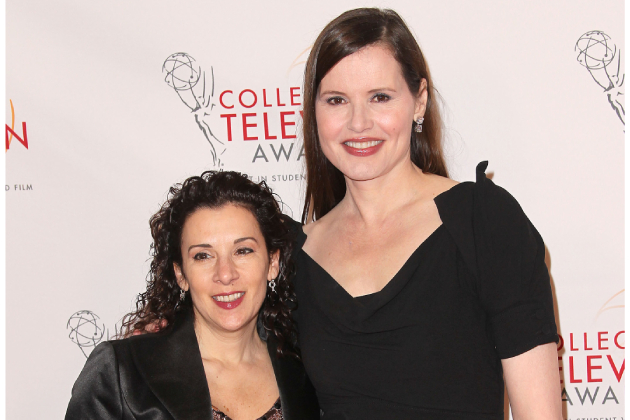As 2022 begins and 2021 recedes into the rear-view mirror, Realscreen looks at three executives who have been forging new paths within the non-fiction and unscripted screen content industry — not only over the course of the past year, but also throughout their careers. Through a deft mix of strategy, innovation and risk-taking, these execs not only serve as transformation agents for their own companies, but also for the business itself. See part one of our Trailblazers for 2021 here, and part two here.
Launching a new streaming platform in an increasingly competitive market isn’t easy, and doing so in the middle of a global pandemic adds an entirely new set of challenges atop finding an audience and developing that platform in the first place.
This is what Ellen Windemuth has faced as the CEO of the WaterBear Network, which celebrated its first anniversary in December 2021. With backing from ZDF Enterprises and Off the Fence (the Amsterdam-headquartered producer/distributor she founded in 1994), WaterBear launched with a goal of offering content that empowered its audience to take direct action in supporting NGOs through awareness, education and action.
In its first year, WaterBear has expanded its reach to 194 countries, built a network of more than 140 NGOs and brand partners, provided access for its members to more than 300 campaigns, produced more than 50 original titles and curated more than 1,000 documentaries.
Even as an experienced corporate executive and producer (one of her more recent credits is the Oscar-winning My Octopus Teacher), taking on WaterBear has been a new challenge for Windemuth, after mostly working in content and production. But she says one of her hopes with WaterBear is that it could inspire similar multi-faceted platforms in the industry.
“People should start to think of an app as an entertainment platform in whatever genre they want to be entertained,” she says. “But I think you’re future-proofing yourself if you also become a tool for the audience, and that’s what I think we’re doing.”
One year in, how does the vision and initial plan for WaterBear compare to the reality of how it’s progressed?
Due to COVID, there have been a lot of things that have worked out well for WaterBear, and other things that, of course, we could never have imagined, that have changed the vision of WaterBear.
Where we’re doing really well is 60% of our viewers are North American, even though we’re headquartered in Amsterdam. I think that’s really unusual, wonderful news, and maybe if we hadn’t had COVID, people wouldn’t have paid that much attention to us overseas. So I think that’s a super-positive outcome. The other very positive outcome is we learned how to remote-produce. We have, in record speed and in record time, built up a global network of impact producers, directors, talent, influencers. It’s a very different workflow from what we imagined.
What are the main challenges WaterBear faced in its first year?
A challenge that we’ve had to deal with is speed while working from home. Our plan included launching to 194 countries this year with the app, and we’ve done that. We’ve had to work from home with each other at breakneck speed, so that’s one thing. The other thing is we’ve had to technically adapt the app to go on [different platforms]. We’re on Apple TV right now and we’re on Roku Global right now, and we are going to launch on five more platforms early in the new year. So we’ve had to do a lot of technical wrangling, and that is not something that is second nature to me, because I am a content person. I’m a filmmaker and I ran a distribution and production company for many years. So at breakneck speed, I’m learning tech and our tech team is educating me incredibly well, and it’s great fun, but certainly challenging.
What are some other aspects of the learning curve you’ve faced going from working predominantly with content to overseeing WaterBear?
The wonderful, wonderful thing about WaterBear is that we have the ability to speak directly with an audience about the 17 U.N. Sustainable Development goals. We have the ability to talk to people all over the world through our WaterBear platform and through the different locations where you’re going to be able to find us, on platforms, on boxes, on FAST channels. We have the ability to tell stories to people who are interested in our future on this planet, and that are devoid of the challenges that come with making content for television, like ratings. We don’t have to worry about any of those things, and we get to experiment firsthand directly with audiences all over the world.
This story first appeared in the January/February 2022 issue of Realscreen Magazine, which is out now. Not a subscriber? Click this subscription link for more information.






























